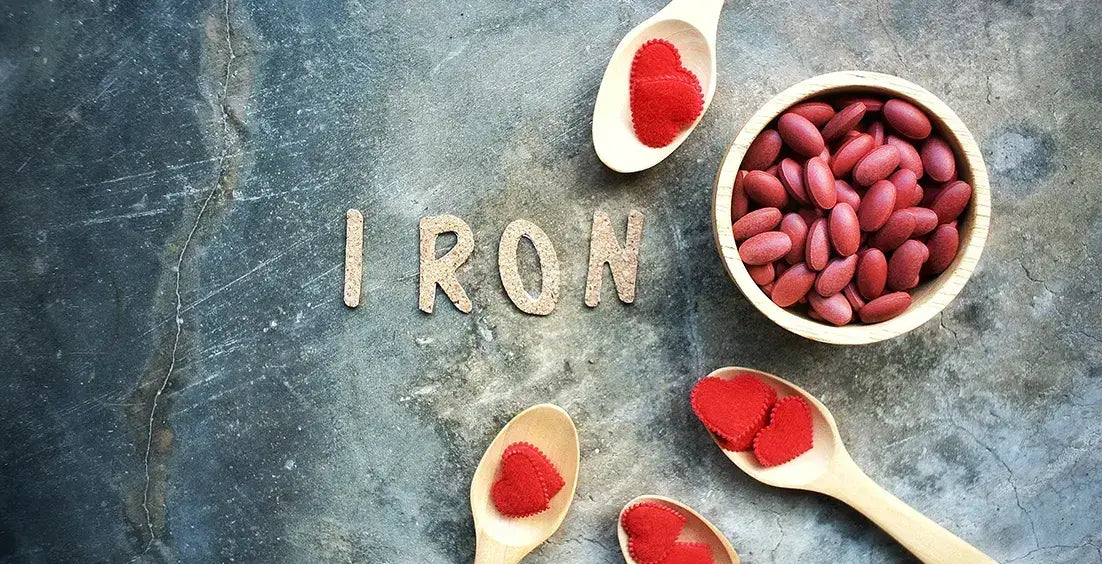Do Multivitamins Expire? When to Replace Your Multivitamin
Vitamin supplements lose potency over time due to factors affecting shelf life.Learn about expiration dates, reasons for expiration, and whether you can take expired vitamins here.

Introduction
Hey there! Anyone can relate to the experience when you just opened the medicine or kitchen cabinet and found multivitamins that had expired a long time ago. However, do those tiny pills and capsules really spoil? Or can we just pop ‘em like nothing is wrong?
Multivitamins are essential and very useful in ensuring that everything in the human body is in order. Of course, it is evident that most of these micronutrients help to enhance the body's immunity, and some help in strengthening bones. Nonetheless, people have the challenge of visualizing multivitamin products to expire when they are already past their shelf dates.
After all, they’re not like food items that can spoil or grow mold, are they? Well, the truth is that multivitamins are not shielded from the reality that they do have a shelf life and, therefore, it is crucial to know when and how they are likely to lose their efficacy.
Understanding Expiration Dates
According to the FDA, Drug expiration dates indicate the period during which the product remains stable, retaining its strength, quality, and purity when stored according to its labeled conditions.
Since we are beginning this discussion, let us dispel one myth first. That scribble on multivitamins containers is not really an expiration date – at least not in the truest sense of the word. In most cases, they are what is referred to as ‘‘best before’’ dates. This data shows that within this timeline, the manufacturer can assure the consumer of the product’s maximum efficacy and quality.
But here's the kicker: It is also important to note that vitamins do not become ineffective at the end of that best-by date. Their degradation is not sudden, but a process that is affected by several factors inevitable in day-to-day life like exposure to moisture, heat and light. Therefore, even though the listed date is useful as a reference point, it is not a strict deadline.
However, what has to be noted is that the dates mentioned on the bottles of vitamins are not random numbers entered there. They are fixed by manufacturers in accordance with vigorous experimentation and analysis done to decide the stability of the product.
According to Dr. Andrew Youssouf, MD, while vitamins may still be safe for consumption after expiration, their effectiveness is greatly decreased. To get the most out of your vitamins, it's recommended to use them before their expiration date.
Factors Affecting Multivitamins Stability
There are several factors that affect the multivitamin's stability as it ages. Okay, these are a few things we have to stay clear of;
- Moisture: The following practically invisible foe can greatly harm emerald multivitamin power. Water infiltration slows the usual rate of degeneration and degradation of the nutrients more than it ought to when exposed to moderate levels. This is why you find those desiccant packs inside – they help maintain the level of moisture in the bag at a very low level.
- Heat: Humility has it that high temperatures pose another risk to the health of the vitamin. Picture your vitamins in the bottles exposed to direct sunlight on a hot summer day or left in a hot room or possibly in a car. In this regard, it is important to acknowledge that high temperatures can catalyze those chemical changes that lead to nutrients’ denaturation.
- Light Exposure: You are aware that milk and some kinds of foods are not supposed to be exposed to direct sunlight. Same deal with vitamins. If they are exposed to light for too long, especially in sunlight, the light causes oxidation and degradation of those minute nutrients.
- Air Exposure: Oxygen is vital for us humans but for vitamins? Not so much. Many nutrients are tolerant to oxidation when exposed to too much air, especially once the bottle has been opened and the contents are no longer sealed off from the atmosphere.
Vitamin's shelf life depends on their forms
All right, now we know what factors can reduce the sustainability of vitamins. But have you considered that even the form of the multivitamins affects its shelf-life? Let's break it down:
Tablets/CapsulesThe simple and well-known approach of using pills usually has a comparatively long shelf life due to the protection of substances from the environment and humidity and light influences. Other conditions of storage will ensure that these will remain stable for 2-5 yrs beyond that best-by date.
LiquidsMultivitamins-drops as well as liquid supplements pose a slightly more complex problem. They are more prone to chemical and microbial action because of the liquid medium that surrounds them. Most can remain steady in the labeled date for a period of 1-2 years provided they are well stored.
PowdersThese are concentrated nutrient blends of powdered formulations that stand to last for a maximum of six months to a year after the container has been opened. This reduces the volume of powder mass that can be protected from air and moisture and hence speeds up deterioration.
GummiesGummy vitamins are a popular choice due to their taste and convenience. However, do gummy vitamins work as effectively as traditional tablets? While they may be easier to swallow, their shorter shelf life can be a drawback. Consume them within 6 months to one year for optimal results.
Signs of Multivitamins Degradation
However, even if you ensure that you check the best-before date on those multivitamin supplements, some signs can alert you that they have gone bad. Here's what to look out for:
Physical Changes
This gives us an evident signal that something is wrong, whereby one of the first signs that one should look for is a change of appearance. The failure to get good colours, an unusual smell, or a rough and powdery surface are good signs that the nutrients have begun to degrade. If those once-bright carriers are looking a little washed out and depressed, then it is high time to throw it away.
Potency Reduction
Of course, the major question is, how effective are expired vitamins when it comes to passing the essential nutrients to the body? Although it may be difficult to determine this just by looking at the supplements in question, if one experiences a decreased effectiveness and potency, especially while changing the dosage, degradation may be a primary cause.
However, it is pertinent to point out that not all vitamin deficiencies are visibly marked. Thus, if, for instance, you are not sure about a product concentration, and the mentioned shelf life has already elapsed, it is rather wiser to avoid health problems and use the concentrated product from the new portion.
Risks of Taking Expired Vitamins
Well, there is actually a proverb that goes like that “if it ain’t broke, don’t fix it. ” As far as the ingestion of walked-out vitamins is concerned, this line of thinking can be quite dangerous. While consuming an old multivitamin or two isn't likely to cause serious harm, there are some risks to be aware of:
Potential Loss of Potency
This refers to our previous point where we have shared the idea that, with time, multivitamins products may lose their efficiency since their active components decompose. Thus, if you ingest a food supplement that has already expired, it may not be as nutritionally potent as you desired.
Contamination Concerns
Seasoning, improper storage or maternal clients’ handling of multivitamins products exposes them to environmental factors such as air, moisture, bacteria or mold. Intake of such foods might result in food-borne diseases or any other illnesses as may be determined by the human body.
Potential Side Effects
It has been suggested that the process of degradation could even change the chemical properties of the nutrients and therefore harm the patient by causing additional side effects or interacting with the medications being taken.
While that old bottle of vitamin C from ten years ago might not harm you, it’s unlikely to do much good either. Supplements lose their effectiveness over time, so it’s always best to use ones that are as fresh as possible.
Sure, it might seem tempting to save a few dollars by using what you already have, but when it comes to your health, it’s worth investing in supplements that actually work. After all, your well-being is priceless!
Learn more with this in-depth video explanation by Alaska Prepper:
Proper Storage Techniques
Okay, so now we know that vitamins are not something that is going to last forever and it actually can spoil. But, how can we optimally store them so that their nutrients stay fresh for as long a time as possible?
Cool, Dry, and Dark
These are the three phrases that any multivitamin user should remember. Store your supplements in a cool dark area where humidity has limited access to it or areas such as the bathroom or kitchen. Light also has an effect on them, as it causes accelerated deterioration; so make sure they are stored in a place away from direct light.
Airtight Containers
Those nutrient-packed capsules plus powders will similarly last much longer if they are stored in air-tight containers or bottles with tight lids. This cuts contact with air and in the process eliminates oxidation.
Refrigeration
For some supplements such as probiotics or fatty fish oils then perhaps the refrigerator is the best place for supplement storage. One needs to read the label or better still speak to a pharmacist because the different products may need varying amounts of refrigeration.
ALSO READ - Do Vitamins Break a Fast
When to Discard Expired Vitamins?
One day, even the grandest of the multivitamins will fall. So, when is it acceptable to toss supplements that have gone out of date?
General GuidelinesMost of the multivitamin shelf life experts agree with the idea that vitamins that have crossed the two-year shelf life, especially those with best-before or use-by dates, should be discarded. This is particularly important for a multi vitamin with iron, as the potency of iron can decrease over time, potentially affecting its effectiveness.
ExceptionsNevertheless, there are a few peculiarities that need to be mentioned with regard to this rule. This is an important notion because, for example, the externe holds that vitamins C is able to remain effective even if consumed after four years from the label date. However, products that are with oil or probiotics must be replaced more often as they go bad quickly.
Tips for Maximizing Multivitamins Shelf Life
We've discussed expiration dates and changes after vitamins expire. But what if you could learn some concepts to extend shelf life from the start? Here are a few pro tips:
- FIFO Approach: Follow a "first in, first out" method to prioritize using older vitamins before newer ones. This helps maintain their potency and ensures they don’t lose effectiveness over time.
- Buy Smaller Quantities: Even though those large supplement jars at Walmart may appear convenient and merely inexpensive, they serve no purpose to you if you are unable to finish them before they go bad. Prefer the smaller portions which actually could be consumed for a few months, at most.
- Check Dates Before Purchasing: This one is simple, but it is so overlooked, that you will rarely see anyone doing it right. In the case of the new bottles of vitamins, there is no harm in checking those best-by dates to gross yourself with the freshest ones.
- Rotate Stock: If you do have larger quantities on hand, listening to the news is good; now is the time to put your stock rotation skills to work! Consume the older stocks before opening up the new stocks. This first-in, first-out system minimizes cases of early expiring.
Thus, when taking your vitamins, if you are a little more careful about how and when you are using them, then you shall have maximized their usage when they are at their most potent state. Ushering in the era of health and happiness along with affordability, it is indeed a win-win situation for millions.
ALSO READ - Are Multivitamins Good for You
Conclusion
Vitamins also undergo some form of deterioration, meaning that they have a shelf life which depends on the effects of heat, moisture, light and several other factors. After expiring they may become ineffective or in some cases, pose health risks to those using them.
However, what this means is that you do not have to discard all your vitamins the day after the best-by date has been indicated on the container. Indeed, practically all supplements can be stored in a cool, dry, airtight environment and so, they are safe to take for several years beyond that date.
In conclusion, the consumption of expired vitamins is not a good practice because one cannot be sure of their effectiveness and or side effects. At the same time, observing the expiration dates and applying the above key principles in the management of their storage can be effective enough.
What is your health, that you want to compromise with second-best nutrients which are a far cry from the best in every sense of the term? As we noted, these supplements have expiry dates. Do yourself a favor and avoid using expired supplements. Your body will benefit more from fresh, potent vitamins than from old, stored ones.
FAQs
Our Top Picks
About WOWMD Staff
The WOWMD Staff category features a diverse team of writers, each bringing specialized knowledge in areas such as nutrition, fitness, wellness, and more. Articles in this category benefit from insights provided by multiple experts. All content is peer-reviewed and regularly updated to ensure compliance with our editorial standards.
Popular Stories
- Best Liquid B12 Supplement: Find out its Dosage & Health Benefits
- Best BCAA Supplements for Fat Loss and Muscle Retention
- Best Maca Root Supplement For Men’s Health, Hormones, & Well-Being
- Best Acai Berry Supplements: The Ultimate Buying Guide
- Spirulina Benefits for Women: Superfood for Skin & Hormones
- Best Foods for Weight Loss: Healthy Meal Options to Try
References
- Expiration Dates - Questions and Answers https://www.fda.gov/drugs/pharmaceutical-quality-resources/expiration-dates-questions-and-answers
- Main factors affecting vitamins' stability https://www.researchgate.net/figure/Main-factors-affecting-vitamins-stability-6_fig2_341603104
- Vitamin stability https://www.asi.k-state.edu/extension/swine/swinenutritionguide/general_nutrition_principles/vitaminstability.html
- Degradation of vitamins https://www.sciencedirect.com/science/article/abs/pii/B9780128173800000087
- Storing your medicines https://medlineplus.gov/ency/patientinstructions/000534.htm
Evidence Based Research
This WOWMD content has been reviewed, as well as checked for facts, so as to guarantee the best possible accuracy.
We follow a strict editorial policy, especially related to the sources we use. Our articles are resourced from reputable online pages, with research drawn from academic institutions and peer-reviewed studies. You can click on the numbers in the parentheses (1, 2, etc.) and check out those references.
The feedback form on this page can be used to report content that is not accurate, up-to-date or questionable in any manner.
We do NOT intend for the information presented through our articles to replace the medical relationship with a qualified physician, nor does it represent specialized advice.


 Skin Detoxification Bundle
Skin Detoxification Bundle Complete Weight Loss Bundle
Complete Weight Loss Bundle Heart Care Bundle
Heart Care Bundle Better Immunity Bundle
Better Immunity Bundle  Men's Immunity & Prostate Health Bundle
Men's Immunity & Prostate Health Bundle Stress + Energy + Wellness Combo
Stress + Energy + Wellness Combo  Energy Booster Combo
Energy Booster Combo Natural Skin Care Bundle
Natural Skin Care Bundle Workout Supplements Combo
Workout Supplements Combo Cognitive Health & Vision Combo
Cognitive Health & Vision Combo Joint Health Support Combo
Joint Health Support Combo



































